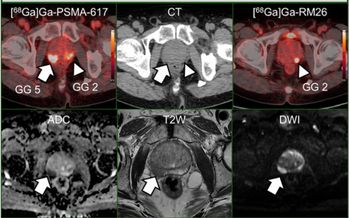
MRI Shows Brain Abnormalities Among Cocaine Addicts
Magnetic resonance imaging detects brain abnormalities linked to impaired self-awareness in cocaine addition, according to a study published in JAMA Psychiatry.
Researchers from Mount Sinai Hospital in New York City used functional and structural MRI to examine gray matter integrity in the anterior cingulate cortex, which controls many cognitive functions, including recognizing and responding to mistakes.
Cocaine-addicted individuals were sorted by self-awareness, based on whether they were able to provide accurate reports of their own choice behavior and through a written questionnaire that assessed emotional functioning. Results were compared against healthy controls and cocaine-addicted individuals who did not have these self-awareness deficits.
"Quantifiable functional and structural abnormalities in the brain were easy to see in the MRIs of cocaine-addicted individuals with impaired self-awareness," senior author Rita Z. Goldstein, PhD, said. "These deficits were prominent even when we compared this subgroup of individuals with other cocaine-addicted individuals whose self-awareness was intact." Goldstein is a professor of psychiatry and neuroscience at the Icahn School of Medicine at Mount Sinai.
These findings could have important clinical implications, said lead author Scott J. Moeller, PhD. "Clearly, one-size-fits-all treatment options for drug addiction are not working effectively," said Moeller, an assistant professor in the department of psychiatry at the medical school. "Pre-therapy motivational interviews may help increase motivation to seek treatment in the first place. Once at the clinic, additional intervention for these individuals could include mindfulness therapies to cultivate self-awareness of substance use triggers and consequences."
The goal of these therapies would be to help counteract the anterior cingulate abnormalities, improve self-awareness and self-control, and ultimately decrease problematic drug abuse.
Further research plans include developing new MRI paradigms to investigate different facets of self-awareness that were not targeted in this study, as well as launching of longitudinal and clinical studies to test how self-awareness relates to drug treatment outcomes.
Newsletter
Stay at the forefront of radiology with the Diagnostic Imaging newsletter, delivering the latest news, clinical insights, and imaging advancements for today’s radiologists.















